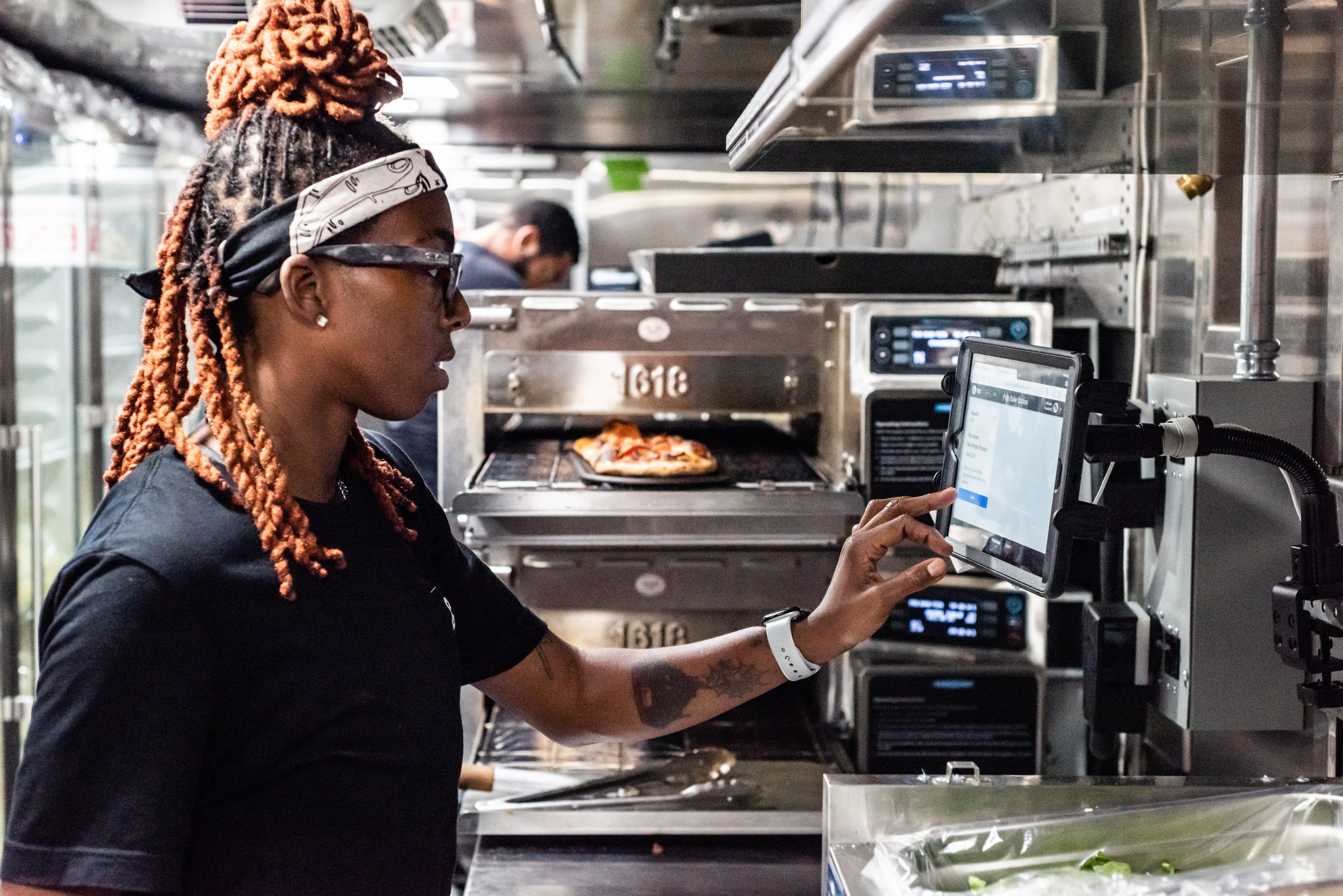Stop & Shop announced today that it has partnered with the Wilkinson Baking Company to install a BreadBot at its Milford, Mass. store, in a move that further illustrates the ways in which food production is moving to the edge, and pushes the grocery chain deeper into automation.
BreadBot was the belle of the ball at this year’s CES. The automated mini-bakery captivated conference goers with its ability to mix, form, proof and bake loaves as you watch. The BreadBot can make up to 10 loaves per hour, 24 hours a day, and can make a variety of breads including white, wheat, whole wheat, sourdough and more. Stop & Shop will sell each loaf for $3.99.
Stop & Shop adding BreadBot is interesting for a few reasons. First, as mentioned before, BreadBot is part of a new wave of companies pushing food production to the edge. In this case, instead of bread being baked at a central facility and distributed around regions, the loaves are baked on-site inside the store.
This in-store production means that shoppers can pick up fresher bread, anytime of day, without the transportation and carbon footprint costs associated with traditional food production. We’ve seen this type of edge production in the coffee world as well with Bellwether, which makes an electric, ventless coffee roaster that allows grocers and cafes to create their own coffee roasts.
BreadBot is also a notable move for Stop & Shop because it’s the second bit of — pardon the jargon here — paradigm-changing automation the grocer has entered into. In January of this year, Stop & Shop announced that it would be deploying a Robomart in the Boston area. Robomarts are self-driving, pod-like vehicles that are essentially mobile mini-marts that roam the roads. They can be called or stopped by shoppers with the mobile app and open up for people to purchase items on the spot.
Though to our knowledge the Robomart pilot has yet to start running, both it and Breadbot point towards a more automated future for Stop & Shop. This is actually part of a larger automation push from the grocer’s parent company, Ahold Delhaize, which is building out back-of-store robotic micro-fulfillment centers and deploying 500 in-store robots to scan for spills and other messes.
All of this automation, however, comes during a year where 30,000 Stop & Shop’s employees went on strike for 11 days over wage and benefits. Automation wasn’t reported as part of that discussion, but one assumes that when this current contract expires in three years, the number and type of human jobs will definitely be a point of negotiation. Especially as Stop & Shop said it plans to install BreadBots in more stores across the region.
















